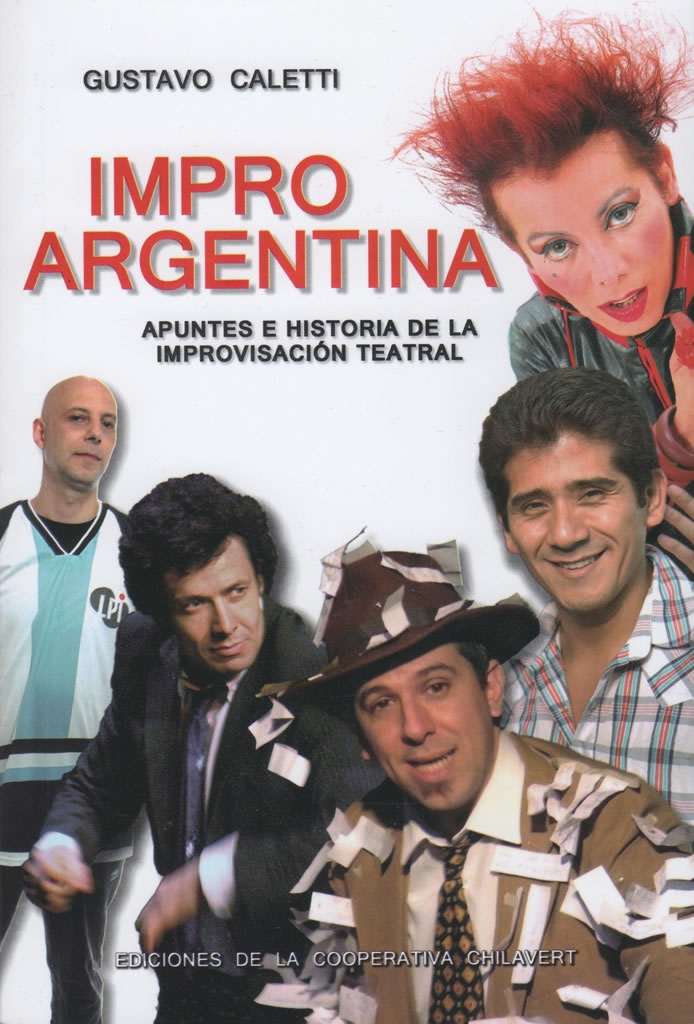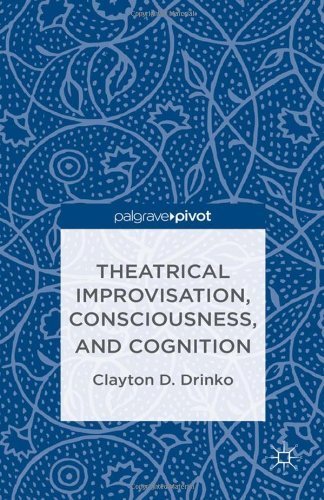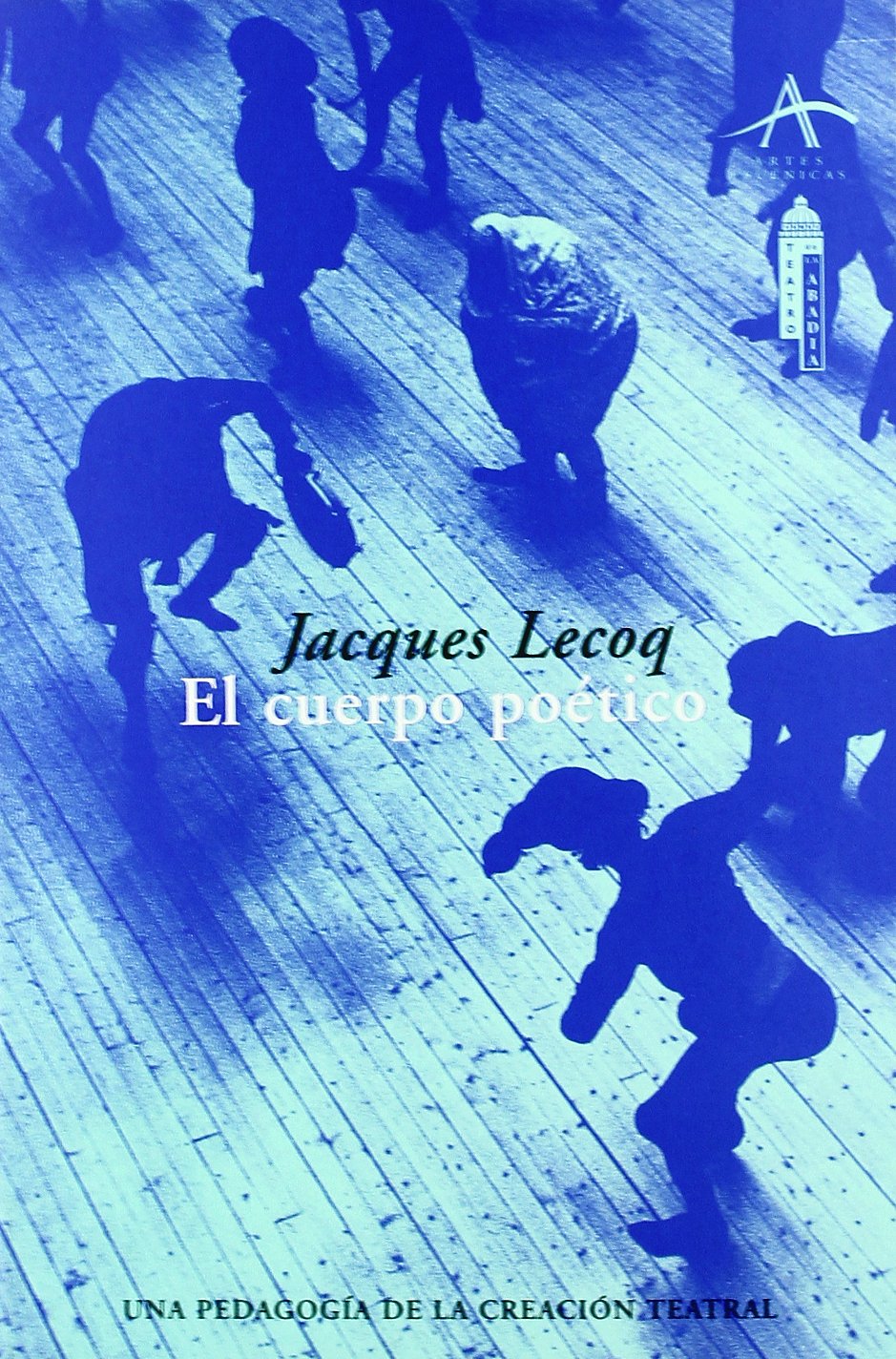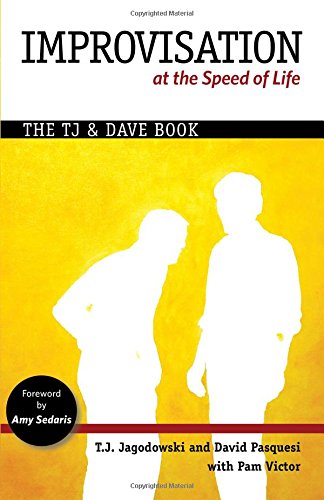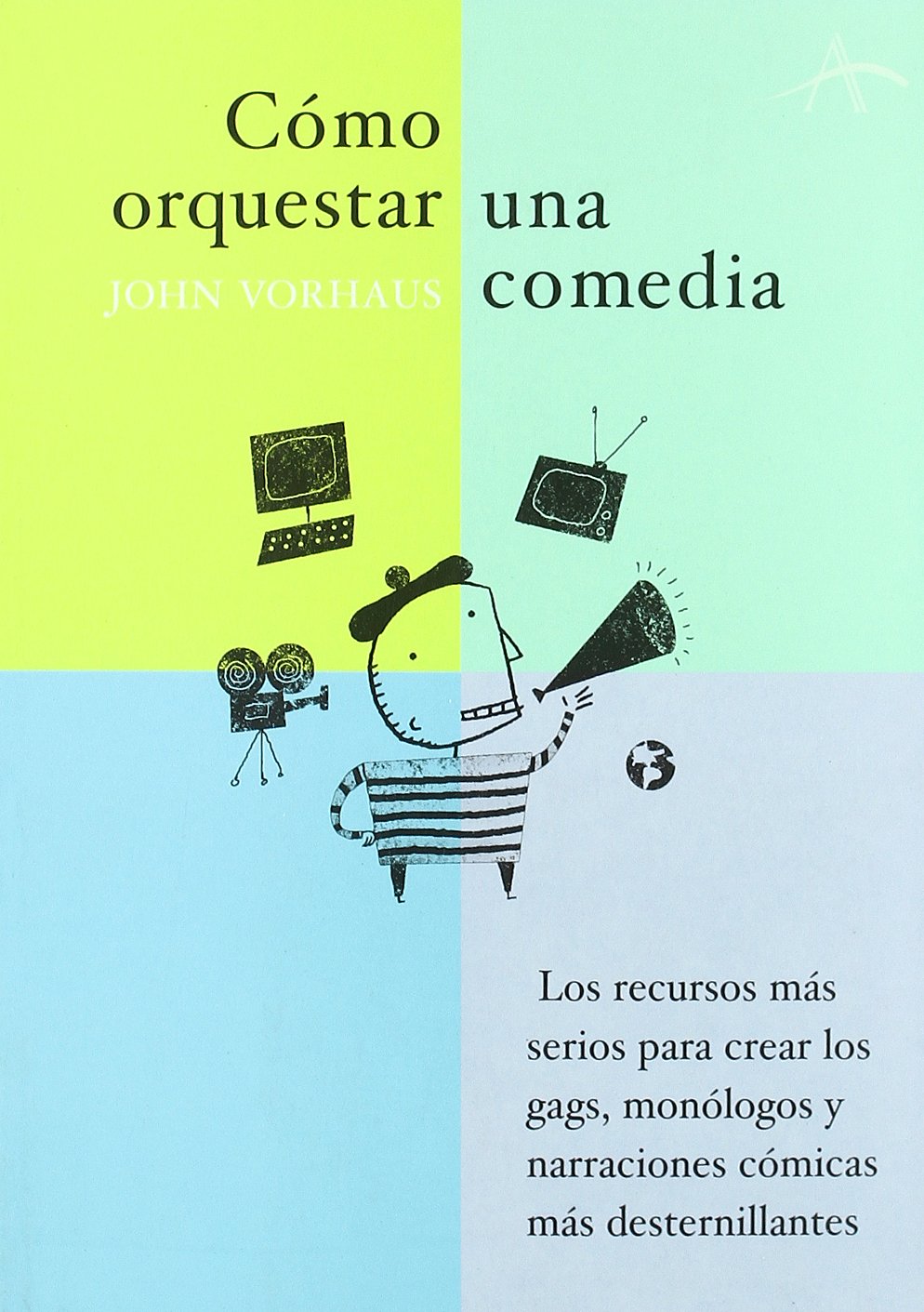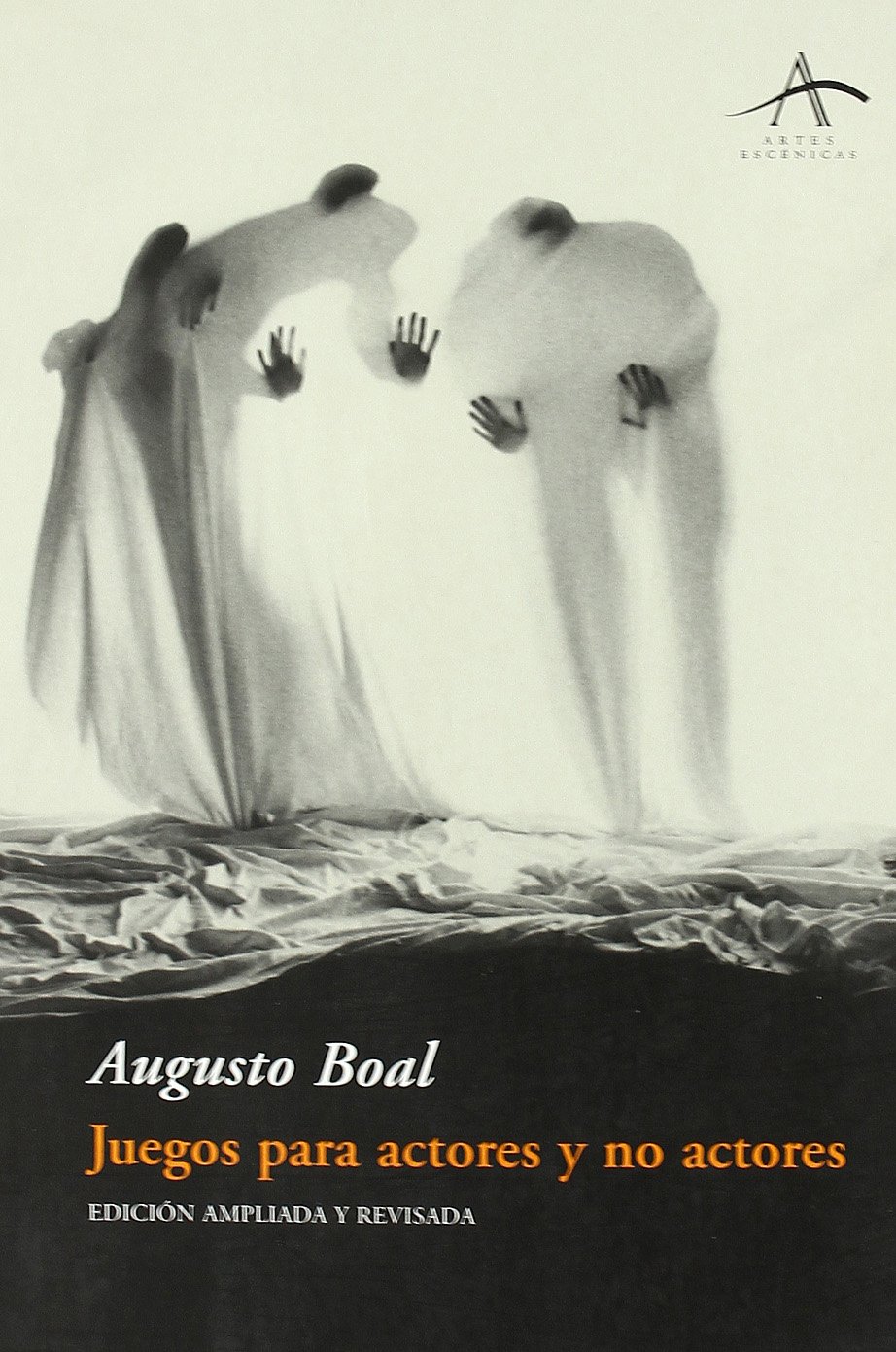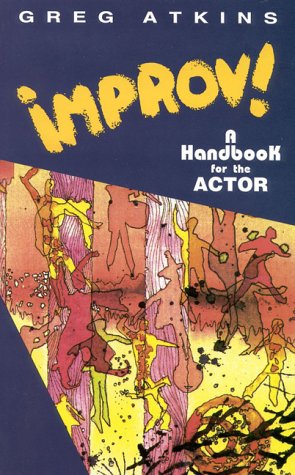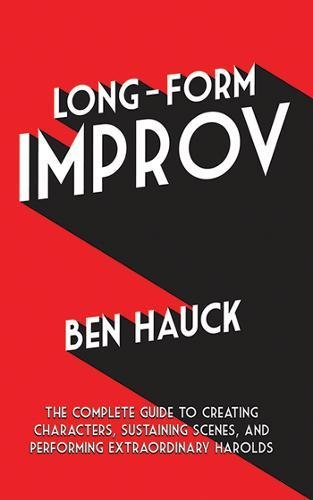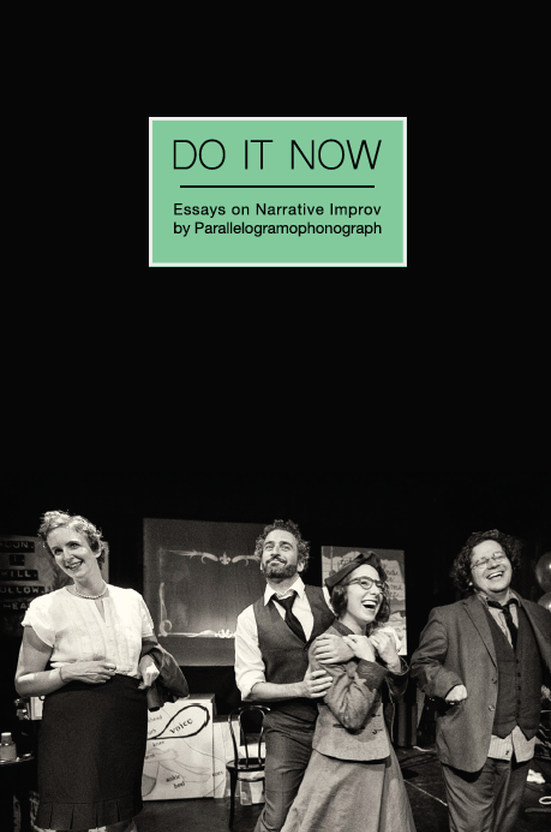Impro Argentina. Notes and History of Theatrical Improvisation. Impro Argentina is the result of an in-depth research work that included more than 40 interviews with personalities from the world of Impro and a thorough review of works on the genre. The first part of the book, NOTES, is a theoretical contribution to the genre of theatrical improvisation: an introduction to Impro for novices and reflection material for those initiated.In THE HISTORY, the second part, Impro’s 21 years in the Argentine theater scene are told for the first time, from its beginnings to the present. Gustavo Caletti does not ignore his preferential dual position: improviser on stage and interested observer of cultural processes. With this work he contributes to disseminate a passion for the stage that attracts more followers every day and, at the same time, debate the place of improvisation in the Argentine theater environment. Official website
Improvisation teachers have long known that the human mind could be trained to be effortlessly spontaneous and intuitive. Drinko explores what these improvisation teachers knew about improvisation’s effects on consciousness and cognition and compares these theories to current findings in cognitive neuroscience, psychology, and philosophy.
Animated by the same spirit as Stanislavski, Vakhtangov, Michael Chekhov, or Meierhold, his own experience as an actor and director leads Lecoq to reformulate principles, investigate processes, and reveal new aspects of the dynamic relationship of the actor, the body, and space.
T.J. and David are internationally known, award-winning, master improvisers from Chicago’s legendary scene. This in-depth look at the techniques, principles, theory and ideas behind what they do is both authoritative and entertaining. Since their early years playing the iO (formerly Improv Olympic) and the Second City mainstage theater (where David won a Joseph Jefferson award for best actor in a revue), TJ and Dave have been performing for over fifty years combined – fifteen as a team. David worked with improvisation guru Del Close, in development of theThe Harold, the preeminent longform theatrical structure, and both are multi-award winning actors.
A straightforward, often humorous workbook approach to comedy writing as creative problem-solving. In it, veteran Hollywood comedy writer John Vorhaus offers his tools of the trade to writers, comics, and anyone else who wants to be funny. Among these indispensable tools are Clash of Context, Tension and Release, The Law of Comic Opposites, The Wildly Inappropriate Response, and The Myth of the Last Great Idea. Readers will learn that comedy = truth and pain (the essence of the comic situation), that fear is the biggest roadblock to comedy (kill the ferocious editor within and rich, useful comic ideas will flow), and much more.
It could not be missing from the Workshops collection (Reading Workshop, Theater Workshop and Voice Workshop), practical work material to play and be able to organize a theater workshop for children. The book offers an abundant amount of possibilities that can be used to organize recreational and theatrical learning sessions with children and young people.
Games for Actors and Non-Actors is the classic and bestselling book by the founder of Theatre of the Oppressed, Augusto Boal. It sets out the principles and practice of Boal’s revolutionary method, showing how theatre can be used to transform and liberate everyone – actors and non-actors alike! This new third English edition includes recently uncovered interviews and essays from the 1970s, some of which featured in the earliest Portuguese edition of this book, and a new essay by the theatre director Sergio de Carvalho, which looks at Boal’s work in the context of Brazilian theatre and politics over the past fifty years. This is a vital handbook for theatre makers and activists of all kinds who want to deepen their understanding of the theory and practice of Boal’s Theatre of the Oppressed. It is also an excellent introduction for those new to the system.
You’re an actor. You know you’re going to have to do it sometime, but the very thought chills your blood, makes your palms go sweaty, and your voice squeak. It’s improvisation – and for many actors it’s a nightmare. Greg Atkins, a member of South Coast Repertory and unabashed improviser, takes the fear out of improv. This friendly, informative book looks at the reasons many actors hate improvisation, while quietly reinforcing the reasons improv is a vital part of acting and of theatre. He offers sensible (and fun!) exercises that can be used by teachers or by actors, to build up the mental agility that is so much a part of improvisation, and that should be part of every actor’s arsenal.
Long-Form Improv: The Complete Guide to Creating Characters, Sustaining Scenes, and Performing Extraordinary Harolds (Ben Hauck) Long-Form Improv deftly teaches the wildly popular form of improvisation that is so foundational to the comedy stylings of many of today’s top actors and thriving comedians. Crammed with innovative ideas for conceptualizing improvised scencework and finding the game of the scene, this crisply written manual covers techniques for experienced improvisers, curious actors, and even non-actors.
When improv quartet Parallelogramophonograph (PGraph for short) embarked on their narrative improv journey in Austin, TX in 2005, they had no idea they were about to spend over a decade learning and discovering how to create fully improvised plays on the spot. This mini-book is filled with several short essays by members of PGraph – all on improv theories and techniques designed to help make narrative improv more fun, accessible, and attainable.
